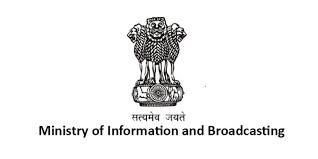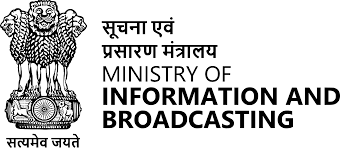India’s First Minister of Information and Broadcasting: A Historical Milestone]
Introduction: A Landmark Appointment
India has recently made a significant addition to its cabinet with the appointment of its first Minister of Information and Broadcasting. This historic development marks a notable shift in the way media and communication will be managed at the highest levels of government. The appointment is expected to streamline information dissemination and enhance the efficiency of media management in the country.
The Role of the New Ministry
The newly established Ministry of Information and Broadcasting will be responsible for overseeing the nation’s media operations, including both traditional and digital platforms. This ministry aims to centralize the control and regulation of media, ensuring that information is effectively communicated and managed across various channels. The move is anticipated to improve transparency and consistency in the government’s messaging.
Objectives and Responsibilities
One of the primary objectives of this new ministry is to modernize the country’s media landscape. The minister will be tasked with implementing policies that support media freedom while also maintaining regulatory standards. Additionally, the ministry will focus on enhancing public relations strategies and fostering a robust media environment that supports democratic values.
Impact on Media and Communication
The creation of this ministry is expected to have a profound impact on India’s media and communication sectors. By consolidating various media-related functions under one ministry, the government aims to provide a more coordinated approach to media management. This move is also seen as a step towards improving the quality and reliability of information available to the public.
Future Prospects
Looking ahead, the Ministry of Information and Broadcasting will play a crucial role in shaping the future of media and communication in India. The new minister will need to navigate the complexities of the media landscape while addressing the needs of both the public and the media industry. The success of this ministry will be measured by its ability to enhance communication efficiency and support a free and fair media environment.

Why This News is Important
Significance of the Appointment
The appointment of India’s first Minister of Information and Broadcasting is a milestone in the country’s governance and media management. This news is crucial as it signifies a shift towards more organized and centralized media oversight. By establishing this ministry, the Indian government demonstrates its commitment to improving media regulation and communication strategies.
Impact on Government Communication
The new ministry is expected to enhance the effectiveness of government communication. With a dedicated department handling information and broadcasting, there will be a more streamlined approach to disseminating information to the public. This can lead to better transparency and a more informed citizenry.
Implications for Media Freedom
While centralizing media oversight, the ministry will also need to balance regulatory measures with the preservation of media freedom. The development of this ministry is a test of how well the government can manage the delicate balance between regulation and freedom in the media sector.
Potential for Policy Innovation
The creation of this new ministry opens up opportunities for policy innovation in the media sector. The minister will have the responsibility to introduce new policies that address contemporary media challenges, such as digital media regulation and misinformation.
Public Perception and Trust
How the ministry operates and its effectiveness in managing information will impact public perception and trust in the government. An efficient and transparent communication strategy will contribute to building greater trust between the government and the public.
Historical Context: Background Information
Evolution of Media Management in India
Before the establishment of the Ministry of Information and Broadcasting, media management in India was handled by various departments and agencies. The evolution of media in India has seen significant changes, from the early days of radio and television to the rise of digital media.
Previous Administrative Structures
Prior to this appointment, information and broadcasting were managed under the Ministry of Information and Broadcasting, which was divided into different departments. The need for a unified approach became apparent as the media landscape grew more complex with the advent of digital platforms and the need for streamlined communication.
Significance of Centralized Media Oversight
Centralized media oversight has been a subject of debate in India. Historically, various governments have attempted to regulate media to ensure accuracy and prevent misinformation. The creation of a dedicated ministry signifies a new approach to managing these challenges in a more organized manner.
Key Takeaways from “India’s First Minister of Information and Broadcasting”
| Serial Number | Key Takeaway |
|---|---|
| 1 | India has appointed its first Minister of Information and Broadcasting. |
| 2 | The new ministry will oversee all media operations, including traditional and digital platforms. |
| 3 | The objective is to centralize media management and improve communication efficiency. |
| 4 | The creation of this ministry aims to balance media regulation with freedom. |
| 5 | The success of the ministry will impact public trust and the effectiveness of government communication. |
Important FAQs for Students from this News
1. What is the significance of the appointment of India’s first Minister of Information and Broadcasting?
- The appointment is significant because it centralizes media management in India, aiming to streamline communication and improve efficiency in media oversight. It also represents a major step in the evolution of media management at the highest level of government.
2. What will be the primary responsibilities of the new Ministry of Information and Broadcasting?
- The ministry will be responsible for overseeing all media operations, including traditional and digital platforms. It will manage media regulations, public relations strategies, and aim to modernize the country’s media landscape.
3. How does the establishment of this ministry impact media freedom in India?
- The ministry is expected to balance media regulation with the preservation of media freedom. Its success will depend on how well it manages this balance while ensuring effective communication and preventing misinformation.
4. What are the expected benefits of having a centralized Ministry of Information and Broadcasting?
- Benefits include improved coordination in media management, more consistent government messaging, enhanced transparency, and a more organized approach to addressing media-related challenges.
5. How might the new Ministry of Information and Broadcasting influence public perception of the government?
- The effectiveness of the ministry in managing information and communication will likely impact public trust and perception. A well-functioning ministry can enhance transparency and build greater confidence between the government and the public.
Some Important Current Affairs Links

















